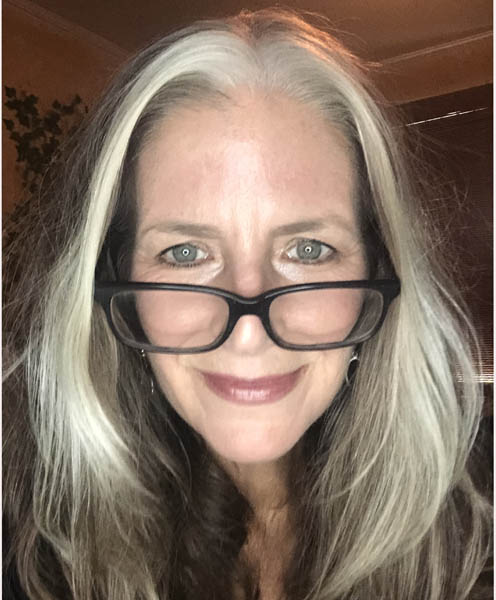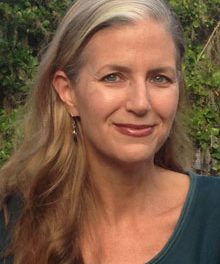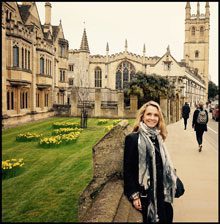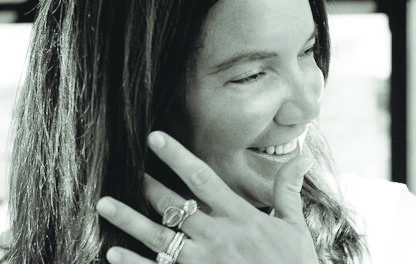The ‘Pat Conroy at 70’ Literary Festival has finally come and gone. We talked it up quite a bit in this publication – for quite a while – and some of you might be all Conroy’d out by now. If so, I humbly invite you to turn the page. I won’t take it personally.
Neither will Pat. He’s sick of himself, too.
But I couldn’t let this weekend pass into history without sharing my impressions. ‘Cause, you know . . . that’s what I do. It’s a compulsion.
First . . . the turnout. It was astounding!
(I hesitated to use that exclamation point. Pat Conroy hates exclamation points. If you find an exclamation point in a Pat Conroy book, it’s the work of some wayward editor. But he also hates reading about himself, so I think I’m safe.)
I’m not just talking about the turnout to flashy events like “The Great Santini” screening/panel-discussion-with-movie-stars, or the Conroy Family Roundtable with Walter Edgar . . . but every single event. Early in the planning process, the organizers at USCB and USC Press worried that the “scholarly panels” on the schedule wouldn’t be popular with the general public, and even considered holding them in a classroom instead of the USCB auditorium.
Either they underestimated the general public . . . or Conroy fans ain’t “general.”
Not only did these free sessions fill a more-than-respectable number of seats in the auditorium, but they filled them with passionate, knowledgeable readers who hung on every word spoken from the stage, asked thoughtful, challenging questions of the scholars, and knew their Conroy backwards and forwards. I spoke with a couple of the visiting professors at a party Friday night, and they told me this was far and away the best conference they had ever attended. Accustomed to delivering their papers before small groups of fellow literary scholars – critical, competitive, eager to eviscerate each other’s work in pursuit of their own academic glory – the experience of presenting to literary fans was new for them, and they were still basking in the sweet afterglow.
So, it wasn’t so much the quantity of festival attendees that struck me – though the numbers were terrific – as the quality. And while their depth was impressive – smart, curious, engaged – their breadth was shocking. These people hailed from everywhere, y’all. I met folks who had traveled here from Massachusetts . . . .Colorado . . . California . . . even Washington (state, not DC).
All for the love of Pat Conroy.
In fact, if I had to sum up the weekend in a word, that word would be love. I couldn’t attend every event – I was on deadline – but whenever I could, I found myself overwhelmed by the palpable love in the room.
Whether it was a visiting scholar reading his favorite Conroy passage aloud – and choking up – or a southern writer discussing Conroy’s influence on her work – with tears in her eyes – or longtime Conroy friends sharing memories – with uproarious laughter – or Conroy family members finishing each other’s sentences in that seamless, telepathic way that families have . . . The love just radiated from that stage into that audience, and the audience beamed it right back. And it was beautiful.
I tried to take notes. I knew I had to write about this marvelous thing that had come to pass in our little town. But it was difficult to remove my eyes from that stage, and I don’t write so well without my eyes.
So now it’s the morning after. I’m at my computer with my coffee, trying to decipher my own chicken scratch, and suffering an emotional hangover. If you don’t know what that’s like, it feels somewhat similar to a wine hangover. But instead of a headache, I’ve got a heartache. I don’t want this weekend to be over. I just can’t let go of the love.
So I’m thinking about yesterday’s Story River panels. Story River Books is Pat Conroy’s new fiction imprint with USC Press, and Saturday afternoon featured a host of writers from that stable, talking about their books and about writing under the influence of Conroy. Mark Powell, whose Story River book The Sheltering is one of the most powerful novels I’ve read in years, spoke of discovering The Lords of Discipline on a bus in high school. “A friend tossed it to me, saying, ‘Read this; I think you’ll get it.’ Well, it got me.” Not only did “Lords” influence Powell to attend the Citadel a year or two later (crazy, right?), but it opened the world of literature to a boy who wasn’t a big reader, and who is now, according to celebrated author Ron Rash (also at the festival), the finest Appalachian writer of his generation.
I’m thinking about Mark Sibley-Jones (By the Red Glare), who said his favorite Conroy book The Water is Wide “showed me I was not alone . . . that we are not alone” . . . and about Eric Morris, who was more excited about reading from Pat Conroy’s foreword to his book Jacob Jump than about reading from the book itself. (“He told me I could write my ass off,” said Morris, reverently, of his first meeting with Conroy.) I’m thinking about Maggie Schein (The Lost Cantos of Orobouros Cave), who grew up with Conroy spinning tales in her living room – in ratty sweatpants – only to blossom into a fine spinner of tales, herself . . . and of Ellen Malphrus, Conroy’s “sister in Dickey,” who has turned her poet’s eye to novel writing with her new Story River release Untying the Moon.
Story River has already published 13 books and there are many others in the pipeline. Pat Conroy has called Story River his gift to readers . . . and to writers.
As if his own books weren’t enough.
There was an unofficial theme running through the weekend, you see . . . a central question asked over and over again, by writers, actors, scholars, and readers alike. You heard it from the stage, in the audience, at the cocktail parties. This question was on everybody’s lips: What was your first Conroy book?
We discussed this question as if we were comparing conversion stories, all of us pilgrims who’d “come to Conroy” down different roads, for different reasons, at different times in our lives. All of us had been sanctified by his words . . . saved by his grace. We were a congregation of zealots, and it’s a fine thing to be a zealot among zealots.
On the final night of the festival – which, as I write, was just last night, so the feelings are fresh – Pat Conroy was interviewed on stage by Catherine Seltzer, who is currently writing his biography. They were introduced by Mayor Billy Keyserling, who roasted his old friend but good before reading him a letter from Barbra Streisand, presenting him with a print of a Daufuskie church by the artist Wendell Minor, then bringing Bronwen Dickey on stage to read his favorite poems by her late father, James. (From my place in the audience, I could see Pat moving his lips to “The Last Wolverine.”) After an intimate conversation with his biographer, and during our (first) standing ovation, Pat got up from his comfy chair, walked to the front of the stage, asked the audience to “sit back down for a minute,” and addressed us with great sincerity . . . not a trace of the famous Conroy sarcasm.
“My readers are extraordinary,” he said. “Finding you has been the most wonderful thing in my life. In my writing, I always wanted to be the complete and brave man that I wasn’t in my real life. I thought that if I could explain my life to myself, maybe I could help explain yours to you . . . that if I was brave enough to write about my own pain, maybe I could help you face yours. All I want now is to write as well as I can, for as long as I can. To honor my teachers, my family, my children and grandchildren. And to honor you.”
(I hope I got that semi-right. I was scribbling as fast as I could, without taking my eyes off Pat’s face.)
When we arrived at the Arsenal later for Pat’s birthday party – attended by several hundred of his closest friends – the first thing I saw was an enormous cake shaped like a shrimp boat, bearing the name “Miss Lila.” And I wept.
Your first Conroy book is like your first love. You never get over it. Mine happens to be The Prince of Tides.








